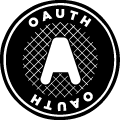 The election for community (individual) OpenID board members is under way at https://openid.net/foundation/members/elections/14. I encourage all of you to vote now. (Don’t wait until the morning of Wednesday, February 6th!) If you’re not already an OpenID Foundation member, you can join for USD $25 at https://openid.net/foundation/members/registration and participate in the election.
The election for community (individual) OpenID board members is under way at https://openid.net/foundation/members/elections/14. I encourage all of you to vote now. (Don’t wait until the morning of Wednesday, February 6th!) If you’re not already an OpenID Foundation member, you can join for USD $25 at https://openid.net/foundation/members/registration and participate in the election.
I’m running for the board this time and would appreciate your vote. My candidate statement, which is also posted on the election site, follows.
OpenID has the potential to make people’s online interactions seamless, secure, and more valuable. I am already working to make that a reality.
First, a bit about my background with OpenID… I’ve been an active contributor to OpenID since early 2007, including both specification work and serving the foundation. My contributions to the specification work have included: an author and editor of the OpenID Provider Authentication Policy Extension (PAPE) specification, editor of the OAuth 2.0 bearer token specification (now RFC 6750), an author and editor of the JSON Web Token (JWT) specification and the JSON Object Signing and Encryption (JOSE) specifications, which are used by OpenID Connect, and an active member of the OpenID Connect working group.
I’ve also made substantial contributions to the foundation and its mission, including: In 2007 I worked with the community to create a legal framework for the OpenID Foundation enabling both individuals and corporations to be full participants in developing OpenID specifications and ensuring that the specifications may be freely used by all; this led to the patent non-assertion covenants that now protect implementers of OpenID specifications. I served on the board representing Microsoft in 2008 and 2009, during which time I was chosen by my fellow board members to serve as secretary; you’ve probably read some of the meeting minutes that I’ve written. I’ve served on the board as an individual since 2011. I have helped organize numerous OpenID summits and working group meetings. I chaired the election committee that developed the foundation’s election procedures and software, enabling you to vote with your OpenID. I co-chaired the local chapters committee that developed the policies governing the relationships between local OpenID chapters around the world and the OpenID Foundation. I also serve on the marketing committee and am a member of the Account Chooser working group.
I’d like to continue serving on the OpenID board, because while OpenID has had notable successes, its work is far from done. Taking it to the next level will involve both enhanced specifications and strategic initiatives by the foundation. Through OpenID Connect, we are in the process of evolving OpenID to make it much easier to use and deploy and to enable it to be used in more kinds of applications on more kinds of devices. The Account Chooser work is making it easier to use identities that you already have across sites. I’m also pleased that the Backplane Exchange work is happening in the foundation – clear evidence of the increasing value provided by the OpenID Foundation. Yet, as a foundation, we need to continue building a broader base of supporters and deployers of OpenID, especially internationally. We need to form closer working relationships with organizations and communities doing related work. And we need continue to safeguarding OpenID’s intellectual property and trademarks so they are freely available for all to use.
I have a demonstrated track record of serving OpenID and producing results. I want to continue being part of making open identity solutions even more successful and ubiquitous. That’s why I’m running for a community board seat in 2013.
Mike Jones
mbj@microsoft.com
https://self-issued.info/
 A fourth set of release candidates for the upcoming OpenID Connect Implementer’s Drafts has been released. Changes since the third release candidates mostly consist of editorial improvements. There were only two changes that will result in changes to implementations. The first was replacing the “updated_time” claim, which used a textual date format, with the “updated_at” claim, which uses the same numeric representation as the other OpenID Connect date/time claims. The second was replacing the “PKIX” JWK key type with the “x5c” JWK key member (a change actually made this week by the JOSE working group).
A fourth set of release candidates for the upcoming OpenID Connect Implementer’s Drafts has been released. Changes since the third release candidates mostly consist of editorial improvements. There were only two changes that will result in changes to implementations. The first was replacing the “updated_time” claim, which used a textual date format, with the “updated_at” claim, which uses the same numeric representation as the other OpenID Connect date/time claims. The second was replacing the “PKIX” JWK key type with the “x5c” JWK key member (a change actually made this week by the JOSE working group).

